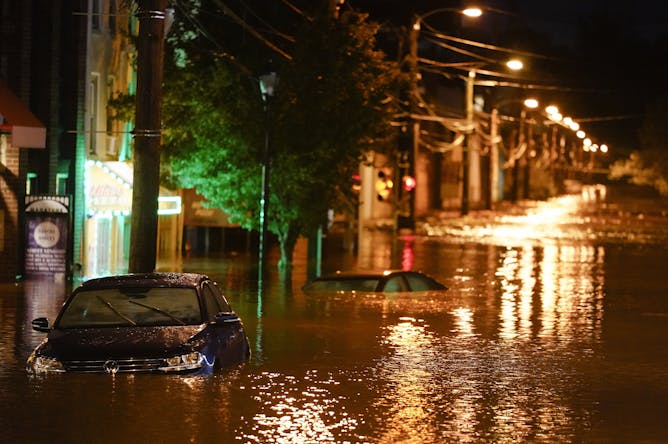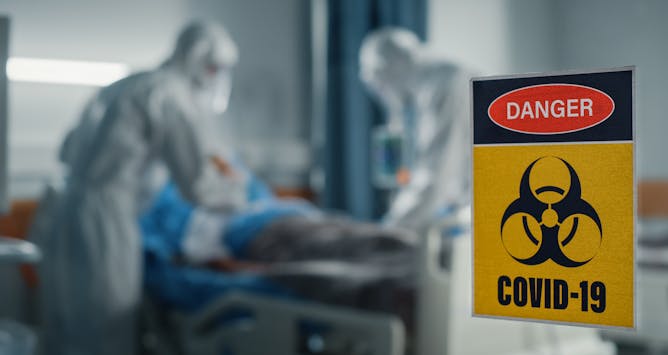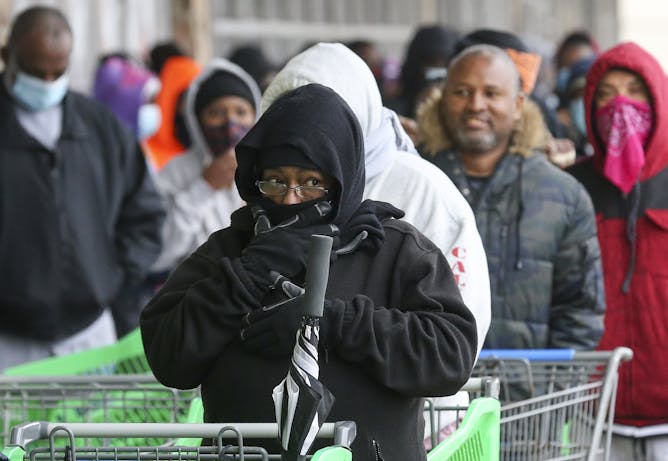|
|
|
|
In just the time I’ve been a reporter and editor on climate change, there’s been a noticeable shift in the national discussion on damaging weather events such as we saw with Hurricane Ida. Whereas, say, 10 years ago most Americans might not have immediately thought that climate change is exacerbating storms, it seems that now people are making a direct connection between extreme weather and our heated atmosphere.
In the terrible aftermath of Hurricane Ida, our editors contacted a number of experts to help make sense of what caused the storm and what solutions may be available. Russ Schumacher, Colorado’s state climatologist, explains what caused the record-breaking rainfall during Ida. (And yes, climate change is one reason.) We also got in touch with Klaus Hans Jacob, who has studied how cities can be more resilient to climate change, to discuss the two primary ways subways can be engineered to better withstand flooding. And finally, Theodore Kury from the University of Florida’s Public Utility Research Center gets into the details of burying power lines underground – and why this practice has its place but is hardly a cure-all.
And as the coronavirus continues to spread throughout the country, we published two additions to our “Frontline” series of stories written by medical professionals caring for COVID-19 patients. University of Washington critical care doctor Nicholas Johnson describes the complex mix of emotions, including the straight-out exhaustion, that he and his colleagues feel in treating unvaccinated COVID-19 sufferers. And UC San Diego intensive care physician Venktesh Ramnath tries to find answers as to why people aren’t taking vaccines by asking the people in front of him: his patients.
We also published findings of some fascinating new science and analysis, including:
Please reply to this email if there’s a story you’d like our team of science editors to investigate.
|

|
Martin La Monica
Director of Editorial Projects and Newsletters
|
|

Philadelphia’s Manayunk neighborhood was flooded by the remnants of Hurricane Ida.
AP Images/Matt Rourke
Russ Schumacher, Colorado State University
Evidence is mounting that, as the climate warms, the amount of rain falling in heavy storms is increasing, especially in the central and eastern U.S.
|

Intensive care physicians are yet again facing ICU bed and staff shortages as severe COVID-19 cases rise.
gorodenkoff/iStock via Getty Images Plus
Venktesh Ramnath, University of California San Diego
A critical care doctor brings a frontlines perspective to the frustration of dealing firsthand with vaccine hesitancy and discusses the limitations of science and medicine.
|

Temperatures in normally warm Texas plunged into the teens in February 2021, knocking out power for a population unaccustomed to cold, with deadly consequences.
Thomas Shea / AFP via Getty Images
Mathew Barlow, University of Massachusetts Lowell; Judah Cohen, Massachusetts Institute of Technology (MIT)
Counter to what you might expect, events like the February cold wave that froze Texas can actually become more likely with global warming.
|
Other good finds
|
-
Klaus Hans Jacob, Columbia University
Images of water gushing into subway stations filled social media following heavy rain in New York City. Solutions are at hand – but it takes money and political will, an expert explains.
-
Andrew Maynard, Arizona State University
If you see the Tesla Bot as a joke or a harbinger of a dystopian future, you could be missing the real threat, which has more to do with Elon Musk’s power than robots run amok.
-
Theodore J. Kury, University of Florida
Hurricane Ida left the entire city of New Orleans in the dark and renewed discussion of burying power lines. But there’s no way to completely protect the grid, above ground or below.
-
David Kleinfeld, University of California San Diego
Mouse brains produce random, strong bursts of dopamine and are able to control them. This may challenge many long-held ideas about learning and motivation.
-
James Hendler, Rensselaer Polytechnic Institute
Politicians of all stripes, computer professionals and even big-tech executives are calling on government to hit the brakes on using these algorithms. The feds are hitting the gas.
-
Jeffrey C. Oliver, University of Arizona; Torbet McNeil, University of Arizona
Undergraduate programs are springing up across the US to meet the burgeoning demand for workers trained in big data. Yet many of the programs lack training in the ethical use of data science.
-
William R. Cotton, Colorado State University
An atmospheric scientist and sailplane pilot describes why large areas of burned land can produce clouds and rainstorms.
|
|
| |
| |
| |
| |

|
| |
| |
| |
| |
| |
| |
| |
| |
|
|
|
|
|
|
|